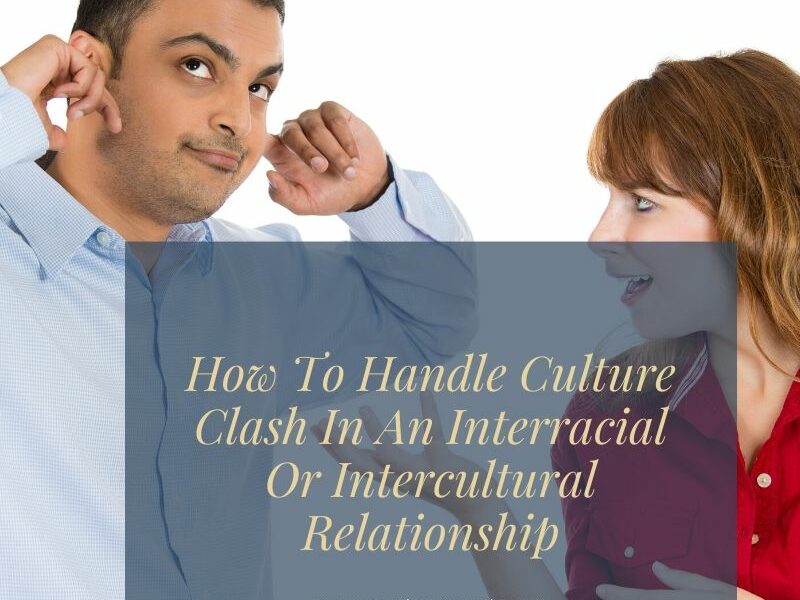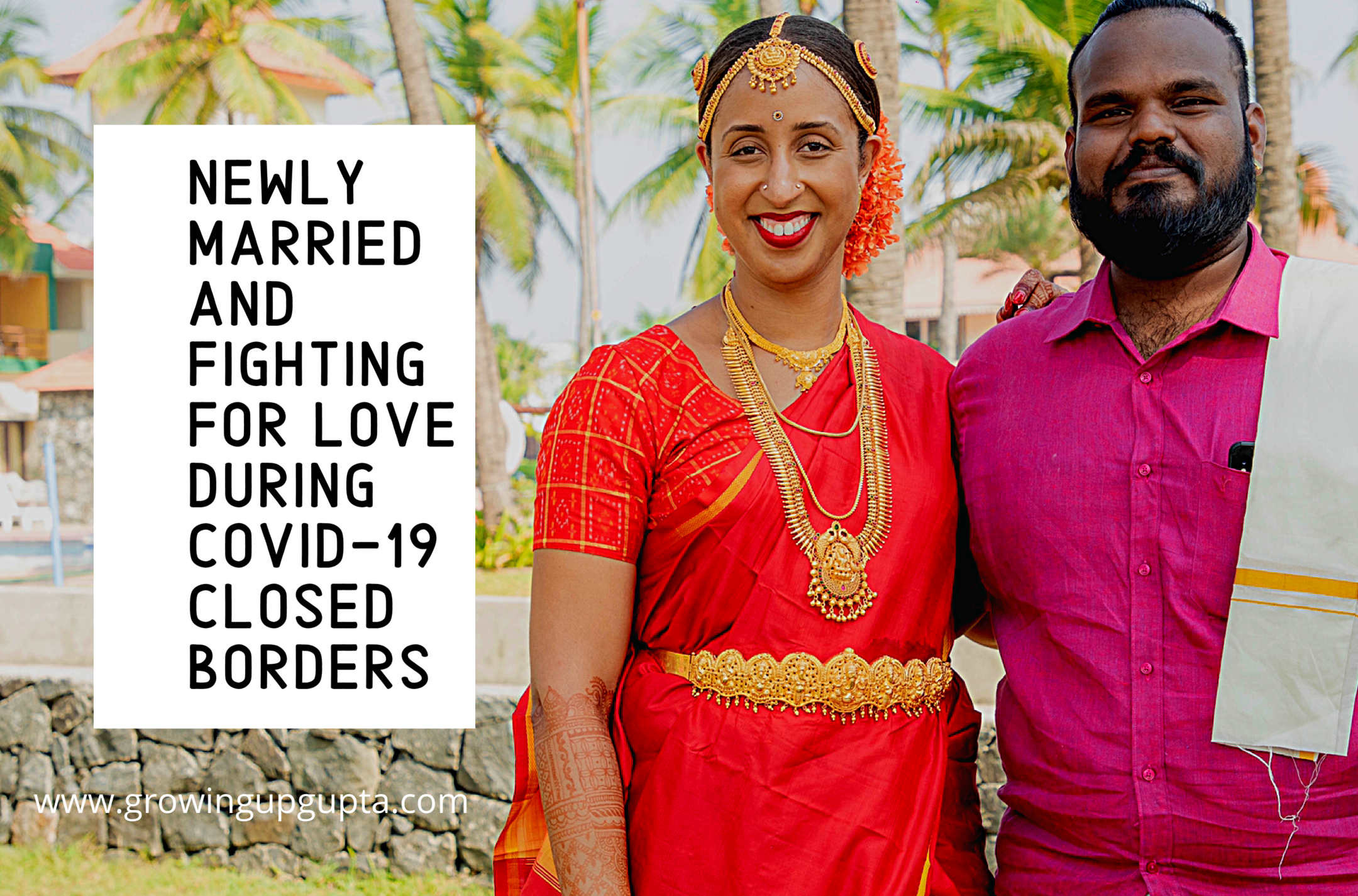
How To Handle Culture Clash In An Interracial Or Intercultural Relationship
What It Means To Be In An Interracial Or Intercultural Relationship
Today more than one in six relationships is categorically interracial — that is, the involved partners are from different racial or ethnic groups. Some (not all) interracial relationships are also intercultural, meaning that the involved partners have different cultural backgrounds. Likewise, not all intercultural couples are interracial. That’s because a person’s cultural background isn’t explicitly tied to their race or ethnicity. Rather, it’s shaped by the country and community they grew up in, their religion and politics, and their proximity to and relationship with family. What’s more, people’s cultural backgrounds often influence their attitudes about gender roles, family relationships, expected and appropriate relationship behavior, etc.
Even when partners have very similar cultural backgrounds, some conflict in the relationship will inevitably arise from differences. Those differences between communication styles, different expectations for and beliefs about relationships, and other disparate aspects of partners’ views and habits always have the potential to spark conflict. So it’s no surprise that categorically interracial and intercultural couples often experience a heightened sense of culture clash in their relationships. Successfully navigating culture clash requires teamwork, perseverance, and a willingness to compromise. If you think you may be experiencing culture clash in your interracial relationship, keep reading to find out the best ways to avoid, minimize, and work through it together!
What Is A “Culture Clash” And How Can It Damage An Interracial Or Intercultural Relationship
Culture clash is a broad term used to describe conflict/tension in an interracial or intercultural relationship stemming from differences between the involved partners’ cultural beliefs and expectations. This includes their knowledge, customs, religious and political belief systems, artistic tastes, morals, understanding of and relationship to the law, and any other capabilities or habits acquired by being a member of their culture. Most often, culture clash and the demise of the relationship happens when each partners’ different beliefs cannot be reconciled with one another.
Sometimes, culture clash is more an issue of surprise than it is of actual disagreement. Often, however, interracial and intercultural couples must work hard to find healthy ways to communicate about and build compromise concerning the attitudes, beliefs, and behaviors that cause a culture clash. Because the process of resolving culture clashes can be stressful and exhausting, it’s not entirely surprising that intercultural and interracial relationships break up at higher-than-average rates.
That said, race is not actually a statistically significant factor in divorce among interracial and intercultural couples. Instead, psychologists and marriage and family therapists suggest that the most critical factor in determining the success or failure of a relationship is the presence and persistence of stress in the relationship. Given all the ways that interracial and intercultural couples experience stress — coming from both outside and inside the relationship — stress over resolving culture clash (or trying to) is likely the culprit in most breakups.
What You’re Doing Wrong When Handling Culture Clash In Your Intercultural Or Interracial Relationship
Though every relationship is unique, there are a few common problem-causing gut-reactions to culture clash. These are attitudes and behaviors that almost universally make the long-term stress in a relationship worse. Prudently facing culture clash head-on when it first arises is more effective than acting like it’s not a big deal. Some of the most common culture clashes interracial and intercultural couples make are:
- Ignoring your cultural differences and/or pretending they don’t matter.
- Pushing things under the rug instead of acknowledging and trying to solve your problems.
- Being oblivious to the fact that some culturally-informed decisions are not open to compromise. For example, deciding whether or not to circumcise or baptize mutual children.
- Believing that culture clash is irreconcilable.
- Not acknowledging, respecting, or finding reasons to celebrate your partner’s culture.
- Being over-eager to give up and/or privatize your cultural beliefs or practices just to avoid culture clashes.
- Believing that you and your partner — and any mutual children you have — must pick one culture and practice it fully.
- Not being open to examining how your cultural background has shaped your expectations, beliefs, and behaviors.
- Dismissing your family’s concerns and/or misleading them about your culturally-informed decisions to avoid culture clash between your family and your partner.
- Failing to look for and find common ground between your/your partner’s cultural beliefs, attitudes, and practices.
How To Successfully Navigate Culture Clash As An Interracial Or Intercultural Couple

As challenging as it is to navigate culture clashes, it will ultimately strengthen the bond between you and your partner. That’s because successful culture clash management requires you to be respectful, empathetic, enthusiastic, supportive, and communicative (all characteristics of healthy relationships!). The best strategies for managing culture clashes are:
- Get to know your partner’s cultural background while you get to know their personality. Taking the time and effort to learn about your partner’s cultural background and talk about their culturally-informed beliefs, attitudes, habits, and practices will yield dividends later in your relationship. And if it makes sense and it is financially feasible travel to the country where your significant other is from or their family originated.
- Learn your partner’s language and ask them to learn yours. In intercultural and interracial relationships where partners speak different languages, it is immensely isolating not being able to communicate. Even if your pronunciation and grammar are awful, there is enormous emotional significance in going out of your way to learn.
- Embrace each others’ traditions. Avoid thinking of your partner’s cultural expression as a threat to your own; you can have both! You’ll likely find that there are traditions, celebrations, and practices in each others’ cultures that you want to incorporate into your shared life.
- Make culturally-informed decisions before having kids. The biggest culture clashes have to do with having and raising children. Having kids is stressful enough on its own. Talk about how you want to navigate childrearing as an interracial or intercultural couple before deciding that you want to.
- Don’t consistently complain about each others families or about being a part of each others’ customs. It’s vital that you don’t begrudge your partner the things that are really important to them. Likewise, your partner shouldn’t act like respecting your spiritual, religious, or customary needs is burdensome or inconvenient.
- Don’t think of your culture as the objective “right” way to do things or diminish your partners’ lived experiences and skills. It’s not fair to expect your partner (or for them to expect you) to disown the beliefs they’ve held since childhood or immediately pick up skills they had no opportunity to learn. Be patient and open to doing things differently.
- Practice emotional maturity and empathy. Temper tantrums and vindictive behavior have no place in a healthy relationship. That is true even (and especially) when one partner resists adopting or fully adhering to the other’s beliefs or traditions. Calm, respectful communication will yield better, faster compromises.
- Seek to create new, blended traditions that celebrate and respect both of you. The key is having continuous, open communication and negotiation. In healthy interracial relationships, interracial and intercultural couples are just “normal” couples participating in both explicit and implicit negotiations about mutually shaping the cultural presentation of their day-to-day lives together.
- Prioritize your compromises. This is not just another way to say “pick your battles.” Instead, decide what cultural behaviors and beliefs are truly important to you and which you would be willing to adjust or abandon based on your partner’s needs and sensitivities.
- Do not bully your partner into giving up things that are really important to them, and don’t allow your partner to bully you into doing so, either. Understand that you both will have culturally-informed beliefs, behaviors, and traditions that are essential to how you individually define yourselves. Don’t make your partner choose between your happiness and their self-actualization. You shouldn’t have to compromise who you are.
In an interracial or intercultural relationship, it’s critical that you’re willing to examine why you do the things you do and believe the things you believe. Some artifacts of your cultural background are meaningful, fulfilling, and essential to how you define yourself. Others are part of how you live your life because that’s just how you’ve always done it. Being part of an interracial or intercultural couple means finding new ways to do it, together.
What did you think about our top tips to handling culture clash? What would you add to this list? Write us! Comment below!
Connect with us on Instagram and Pinterest @growingupguptas, Twitter @growingupgupta, and on Facebook @growingupguptatheblog.
This post contains affiliate links which support the operation of this blog.
Pin this post for later here!












[…] One of the biggest obstacles we have faced being in an interracial/ intercultural relationship has b…. The only way we managed this was to give each other time to question everything. Staying curious helps a lot. The more we learned about each other’s cultures over time, the more familiar it became. At that point, we were both able to decide what unique combination of ideas we wanted to adopt into our relationship. […]
[…] like us, they create a sense of community. These movies show the world at large that color, culture, and ethnicity are just parts of the human equation. Furthermore, they are flimsy excuses to go […]
[…] society did not readily accept their wedding. They had to work to convince their families to accept each other’s cultures and to show them how they could happily […]